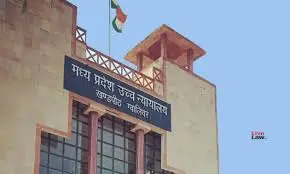Sexual harassment allegations against Jabalpur University V-C, Madhya Pradesh High Court forms SIT to probe

The Madhya Pradesh High Court has stepped in to ensure a fair investigation into sexual harassment allegations against Prof. Rajesh Kumar Verma, the Vice-Chancellor of Rani Durgavati Vishwavidyalaya (RDVV), formerly known as Jabalpur University. The court ordered the creation of a Special Investigation Team (SIT) after expressing concerns over how the university handled the case.
The Complaint and Key Incident
A senior female officer at RDVV accused the Vice-Chancellor of inappropriate behavior during a meeting on November 21, 2024. According to her complaint, Prof. Verma made indecent gestures and used sexually suggestive language during the discussion. The officer said the incident left her feeling uncomfortable and violated.
She initially turned to the university’s internal complaints committee. However, she soon grew dissatisfied with the investigation. The slow progress and lack of evidence collection led her to approach the Madhya Pradesh High Court for justice.
CCTV Footage Missing: A Major Concern
The complainant asked the university to preserve the CCTV footage from the Vice-Chancellor’s office. She believed the recording could support her claims. University officials, however, said the footage was unavailable due to a technical error.
This explanation raised red flags. Earlier, the university had assured the court that the footage was safe. Later, they reported it missing. The court questioned this sudden change. Judges said the timing and reasons for the footage loss seemed suspicious.
High Court’s Strong Stand
The court criticized the internal investigation as inadequate. It noted that officials failed to follow basic procedures. Judges pointed out that the university offered no evidence of a technical fault. No backup copies or server logs were shared either.
Reacting to these lapses, the High Court ordered the Madhya Pradesh government to form a Special Investigation Team within three days. The SIT must include three senior IPS officers. At least one of them should be a female officer of Superintendent rank. The court also asked that the team remain independent of Jabalpur district authorities to ensure neutrality.
The court has directed the SIT to submit regular reports on its progress.
Repeated Lapses by the University
The High Court also examined the district collector’s report. The collector had reviewed the university’s internal handling of the case. His report showed that the inquiry lacked urgency and seriousness. Officials had not taken proper steps to secure key evidence, like CCTV footage.
The judges said the university acted carelessly despite knowing the seriousness of the charge. They asked why no one tried to back up the footage earlier, especially after the court’s initial orders to preserve it. The court described the internal probe as vague and insufficient.
Growing Public Outcry
This case has drawn public attention across Madhya Pradesh. Many student groups and civil society organizations have demanded a fair probe. Protesters held peaceful rallies in Jabalpur and Bhopal, urging authorities to suspend the Vice-Chancellor until the investigation is complete.
Dr. Priya Tiwari, a women’s rights activist, said, “It’s shocking that a university failed to act responsibly in such a serious matter. We are grateful that the court stepped in.”
Many academic experts and former students have shared similar views. They argue that institutions of higher learning should lead by example when dealing with sensitive issues like sexual harassment.
What the SIT Will Do
The SIT will investigate all aspects of the case. Officers will examine evidence, interview witnesses, and access digital records. The team will also investigate the disappearance of the CCTV footage.
If officials are found to have tampered with evidence or obstructed justice, the SIT can recommend criminal charges. The court made it clear that no one should be spared if found guilty.
The High Court said it would monitor the investigation closely. It also warned that further legal action might follow if the SIT finds proof of wrongdoing.
A Larger Message on Institutional Accountability
This case highlights a broader problem in Indian academic institutions—how they handle sexual harassment complaints. Often, victims face silence, delays, or cover-ups. This case shows how important it is for courts to intervene when institutions fail to act.
The High Court’s decision sets a strong precedent. It sends a message that powerful individuals in high positions will be held accountable. Gender-based misconduct cannot be brushed aside, especially in educational institutions meant to uphold justice and equality.
Conclusion
The Madhya Pradesh High Court’s order to form an SIT in the RDVV case is a crucial step. It aims to ensure fairness and transparency in a matter that affects not just one person, but the entire academic community. The SIT’s findings may shape how similar cases are handled in the future.
As the investigation moves forward, many are watching to see whether justice will be served. This case could mark a turning point in how Indian universities respond to allegations of sexual misconduct.






